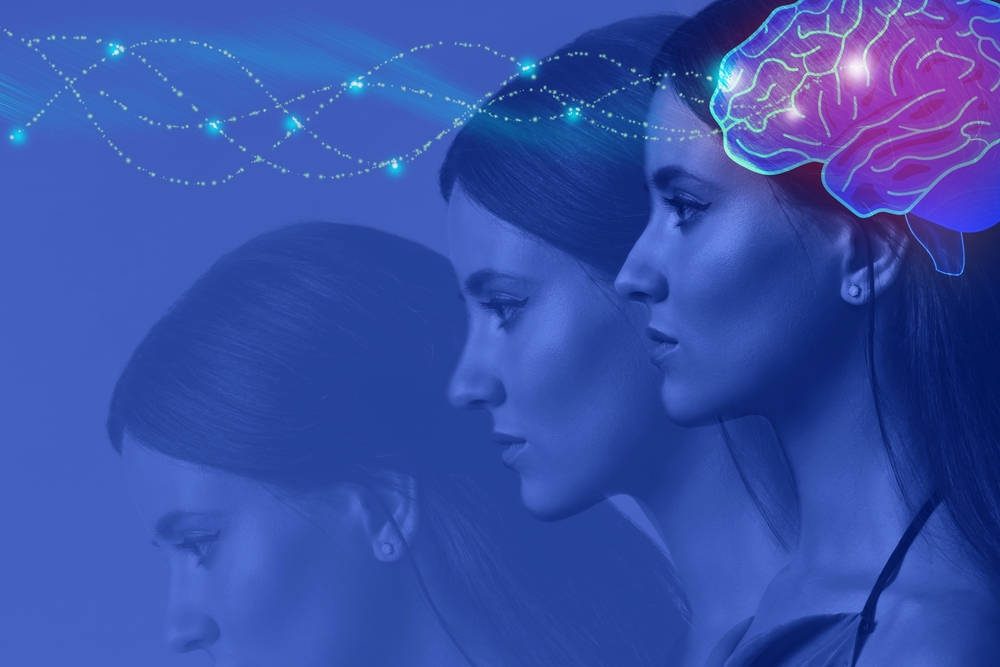How Neurodivergence Shapes Modern Identities Like Nebula Sexuality
In a world where labels are constantly evolving to reflect the complexity of human identity, a new term has emerged from the fog quite literally. Nebulasexual, a word inspired by the ethereal beauty of cosmic clouds, captures an experience that many neurodivergent people say finally describes the hazy way they feel attraction. For those whose brains process emotions and sensory signals differently, traditional definitions of sexual or romantic attraction often feel imprecise, even alien. Nebulasexuality bridges that linguistic gap, offering not only a label but also a sense of validation for people who have long felt unseen in the discourse of sexuality.
The term, which draws its name from the Latin word nebulous meaning cloudy or unclear, began circulating in online LGBTQ+ spaces in the mid-2010s. Now, it is gaining traction across social media platforms, particularly on Reddit and Tumblr, where people share stories of how neurodivergence can blur the boundaries between types of attraction. To be nebulasexual isn’t to be confused or indecisivit’s to experience attraction through a fog, where emotions, aesthetics, and thoughts overlap in unpredictable ways. For many, embracing the label has been less about defining their sexuality and more about reclaiming the right to not have a clear-cut answer at all.
A Sexuality Shaped by the Mind’s Fog
Nebulasexuality exists at the intersection of neurodivergence and attraction, and its name reflects that complex terrain. Rather than referring to stars or galaxies, the “nebula” in nebulasexual symbolizes the clouded sensations that can accompany neurodiverse experiences. Psychosexual therapist Annabelle Knight describes it as a natural extension of how the neurodivergent brain perceives social and sensory cues. For some, bodily signals and emotions don’t register in a linear way. The result can be a form of attraction that is felt but not easily categorized sexual, aesthetic, or emotional. It is not about indecision; it is about how the brain itself processes intimacy.
According to Queerdom Wiki, someone who identifies as nebulasexual ‘is unable to, or has a hard time distinguishing what sexual attraction is compared to other forms of attraction.’ That distinction, or lack thereof, often connects to conditions like ADHD, autism spectrum disorder (ASD), or obsessive-compulsive disorder (OCD), where sensory input and intrusive thoughts can muddy emotional clarity.

As one Reddit user described it, “I might think someone is attractive, but whether that’s sexual, aesthetic, or just my brain hyperfixating on their features? No clue. Nebulasexual fits perfectly.” Such testimonies reveal how the term functions as both identity and relief a way to name what has long been felt but rarely articulated.
The nebulasexual experience often comes with a constant background of uncertainty. It’s not that attraction doesn’t exist, but rather that its nature defies easy definition. For those navigating this terrain, the language of clarity straight, gay, bi, ace feels like trying to draw a map through fog. Nebulasexuality acknowledges that fog as a legitimate orientation in itself, reframing what it means to understand attraction in a neurodiverse world.
The Rise of a New Identity

Like many identities born online, nebulasexuality began in small corners of the internet before seeping into mainstream LGBTQ+ discourse. It shares conceptual space with terms like quoiromantic and nebularomantic, which also describe attraction that feels indistinct due to neurodivergence. Early Tumblr communities in the 2010s were crucial in shaping this language. By 2020, a user had even designed the nebulasexual pride flag a soft palette of orange, white, and green inspired by the Crab Nebula, a supernova remnant whose diffuse beauty mirrors the emotional haziness at the heart of the identity.
Social media has become both the birthplace and the amplifier of this emerging terminology. On Reddit and Twitter (now X), countless threads unpack what being nebulasexual means. One user wrote, “The intrusive thoughts make it so hard to know what’s me and what’s just my brain being chaotic. This label helps me feel less broken and more understood.” Another commented, “Finding the term nebulasexual was like finally having words for this fog I’ve been living in.” For these individuals, naming the experience doesn’t simplify it dignifies it.
As more people discover the term, the response has been a mix of celebration and skepticism. Some within and outside LGBTQ+ spaces have questioned whether new labels like nebulasexual overcomplicate the landscape of identity. But for those who use it, the word is less about complication and more about coherence. As one Redditor noted, “We aren’t broken, we just experience attraction in a different way due to our disorders.” In that sense, the term isn’t an addition to a list of labels it’s a recognition of difference as normal.
How Neurodiversity Shapes Attraction

To understand nebulasexuality, it helps to look at the neurodivergent experience itself. Autism, ADHD, OCD, bipolar disorder, and other neurodevelopmental or psychological conditions affect how the brain processes emotion, sensory input, and interpersonal connection. Studies have shown that neurodivergent individuals are statistically more likely to identify as asexual, queer, or otherwise outside heteronormative labels. One study even found that people on the autism spectrum were up to eight times more likely to identify as asexual than neurotypical peers.
Annabelle Knight, a psychosexual therapist and Lovehoney expert, notes that this isn’t about confusion but about a unique emotional syntax. “For many neurodivergent people, processing emotions and sensations can feel different,” she says. “Social cues, bodily signals, or even the concept of attraction might not register in the same way as they do for neurotypical people.” What might seem like ambivalence or detachment to others can actually be an internal complexity that defies easy interpretation. Nebulasexuality, in this light, becomes a kind of bridge between neuropsychology and identity a word that acknowledges that attraction itself can be neurologically distinct.
It also highlights how fluid human sexuality can be. For some, identifying as nebulasexual is a temporary stage in self-discovery. For others, it is a lifelong orientation. Knight explains that some people may gain clarity over time as they explore relationships and self-awareness, while others may continue to experience attraction as something abstract or shifting. Both experiences, she emphasizes, are valid and real. The fog does not need to clear for a person to understand themselves.
The Meaning Behind the Flag
Nebulasexuality is the orientation that can make desire feel like an alien concept https://t.co/V6YusYpPEF
— Metro (@MetroUK) October 23, 2025
The nebulasexual flag, inspired by the Crab Nebula, carries deep symbolism for many who identify with the term. Designed by a Tumblr user in 2020, it features hues of orange, white, and green colors drawn directly from astronomical imagery. The aesthetic resemblance to the nebula isn’t just poetic; it serves as a metaphor for the lived experience of those who feel their attraction exists in a luminous haze. As one user described it, “The colors really capture that ‘cloudy’ feeling of not being sure about attraction.”
The creation of the flag mirrors similar trends across the LGBTQ+ spectrum, where visual symbols become anchors for identity and community. For many nebulasexual individuals, waving the flag at Pride is an act of reclamation a way to assert that ambiguity, too, deserves visibility. It reflects a growing movement within queer spaces that values nuance over certainty, recognizing that human experience is rarely binary or fixed.
Interestingly, the design of the nebulasexual flag also connects to related identities such as nebularomantic and nebularoace. Nebularomantic refers to people who struggle to differentiate between romantic and platonic attraction, while nebularoace describes those who identify as both nebularomantic and nebulasexual. These labels together form a constellation of identities that speak to how neurodivergence reshapes emotional perception. They are less about compartmentalizing human experience and more about expanding the vocabulary through which it is described.
Criticism, Misunderstanding, and the Language of Self

Every new label arrives with debate. As nebulasexuality has gained attention, detractors have accused it of unnecessary complexity or even satire. Some social media users have argued that the proliferation of new terms risks diluting the clarity of LGBTQ+ discourse. A Facebook user summed up that skepticism bluntly: “We have officially lost it. Really, doesn’t it just make you want to drop whatever is in your hands and go home?”
Yet history suggests that every identity, from bisexuality to nonbinary, has faced similar scrutiny at its inception. Language evolves to meet human need, and each new word begins as a rebellion against invisibility. In this case, nebulasexual doesn’t invent confusion it names it, validates it, and frames it within the context of neurodiversity. To reject it is, in some sense, to overlook the neurological realities that make human sexuality so varied.
For many, finding the term brings a sense of peace. It allows them to approach relationships without the pressure of defining what kind of attraction they feel, or when. It can be liberating to admit, as one Redditor wrote, “I don’t know what I feel, but that’s okay.” And that, perhaps, is the radical essence of nebulasexuality to make uncertainty not a flaw but a valid expression of self.
Navigating Relationships and Communication

For those who identify as nebulasexual, intimacy can still be fulfilling just defined differently. Communication becomes the most crucial tool in relationships. Psychotherapists recommend being open about emotional and sensory experiences, setting boundaries, and avoiding assumptions about what attraction or desire should look like. As Annabelle Knight advises, “Talk openly about what feels comfortable, and explore intimacy slowly, without forcing labels or expectations.”
Partners of nebulasexual individuals may need to cultivate extra patience and empathy. Attraction that feels fluid or unclear can still be deeply meaningful. Rather than focusing on labels, relationships benefit from shared curiosity exploring connection as an ongoing conversation rather than a fixed definition. Therapists who specialize in neurodiversity often emphasize that love itself can take forms that don’t fit typical romantic scripts. For those in the nebulasexual community, this means embracing emotional authenticity even when language falls short.
In this sense, nebulasexuality challenges not only sexual labels but also the very structure of modern relationships. It asks whether intimacy must always be defined by clarity or whether, sometimes, the most honest expression of love is to acknowledge the unknown.
Language, Identity, and the Human Need to Belong
Nebulasexuality may be a niche identity now, but it reflects a much larger cultural shift. As our understanding of neurodiversity expands, so too does our awareness of how the mind shapes identity. For centuries, sexuality has been described through the lens of behavior who we desire, how we act. But in the twenty-first century, it is increasingly understood as an intersection between biology, psychology, and culture. Nebulasexuality sits precisely at that crossroads, reminding us that the brain is as much a part of desire as the body.
The rise of nebulasexuality and related terms underscores a crucial truth: language doesn’t just describe reality it creates it. When people discover words that mirror their lived experience, they gain a framework for self-understanding. For neurodivergent individuals, that can mean the difference between isolation and belonging. The term may seem obscure now, but its existence enriches the broader tapestry of human expression.
In a universe filled with billions of stars and endless cosmic dust, it seems fitting that one of the newest identities draws its name from a nebula something vast, uncertain, and quietly beautiful. Being nebulasexual isn’t about confusion or indecision; it’s about honoring the way some minds perceive desire differently. It reminds us that clarity isn’t always the goal. Sometimes, the most truthful way to describe attraction is through the soft light of a nebula shimmering, indefinite, and wonderfully real.

